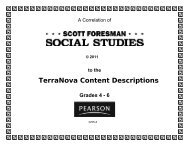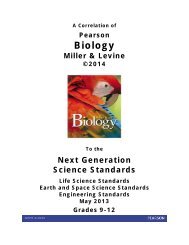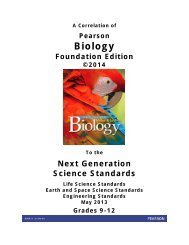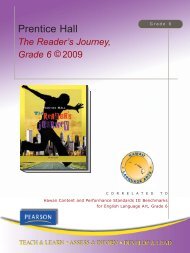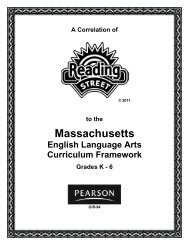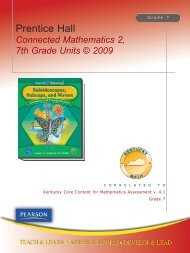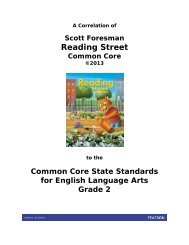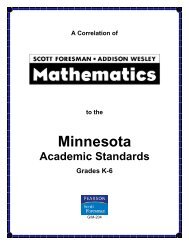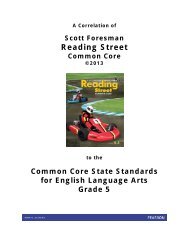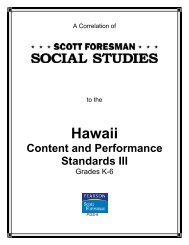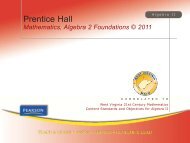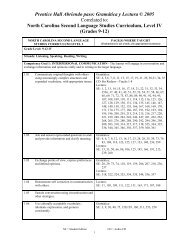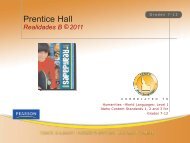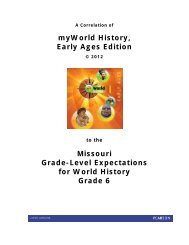Scott Foresman Reading Street - Pearson
Scott Foresman Reading Street - Pearson
Scott Foresman Reading Street - Pearson
You also want an ePaper? Increase the reach of your titles
YUMPU automatically turns print PDFs into web optimized ePapers that Google loves.
<strong>Scott</strong> <strong>Foresman</strong> <strong>Reading</strong> <strong>Street</strong> © 2008to theCommon Core Georgia Performance Standards (CCGPS)Grade 5Common Core GeorgiaPerformance Standards – Grade 5b. Form and use the perfect (e.g., I hadwalked; I have walked; I will have walked)verb aspects.<strong>Scott</strong> <strong>Foresman</strong><strong>Reading</strong> <strong>Street</strong> © 2008In the Grammar strand, lessons areprovided for identifying simple tenses, mainverbs, and helping verbs, irregular verbs,and the principal parts of verbs. In the firstlesson on the principal parts of regularverbs (TE 3: 315e–315f), the perfecttenses are discussed on Day 4.You may also want to discuss verb aspects,which describe the nature of the action ofthe verb. The simple or indefinite aspectdescribes the action but does not determineif the action is finished. The complete orperfect aspect describes the completedaction, while the continuing or progressiveaspect describes an unfinished event oraction that is still going on in the present,past, or future.As you discuss the perfect tenses withstudents, note that they reflect the perfectaspect of a verb. Remind them that thepresent perfect identifies action that tookplace at an indefinite time in the past andhas been completed. Past perfect identifiesaction that took place before another actionin the past, and future perfect tells about afuture action that will end before anotherfuture event begins.• Present perfect tense I have walked.She has walked.• Past perfect tense I had walked. He hadwalked.• Future perfect tense I will have walked.She will have walked.Find examples of perfect tenses in aselection, such as Leonardo’s Horse—pastperfect tense: “had forgotten” in thesentence “The age was called theRenaissance, a time of rebirth when peoplewho had forgotten how to be curiousbecame curious again.” Discuss the pastperfect tense and ask students to give thepresent perfect and future perfect tense offorgotten. Repeat with other examples fromthe selection, such as “had heard” and “hadplanned.”SE = Student Edition36TE = Teacher’s Edition



